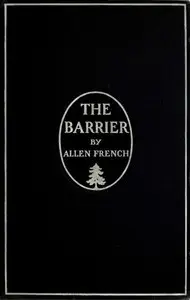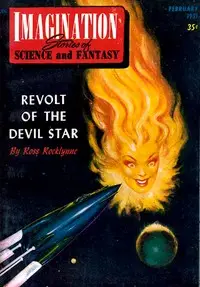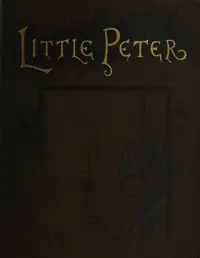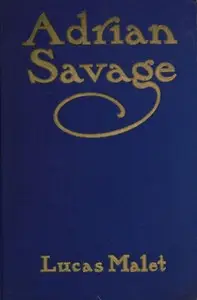"The Gateless Barrier" by Lucas Malet is a late 19th-century novel about Laurence Rivers, a young man journeying to England to see his sick uncle while wrestling with life's big questions. The novel opens with Laurence on a solitary voyage, experiencing freedom unlike anything from his marriage. Arriving at his uncle’s estate, Stoke Rivers, he finds an oppressive atmosphere and strange stories, hinting at supernatural events and moral issues. Through his uncle, Laurence is drawn into a web of thinking about life, love, and what it all means, potentially changing his path forever in this exploration of identity and the human condition.

The Gateless Barrier
By Lucas Malet
A young man's journey to visit his uncle sparks a battle between his shallow marriage, his intellectual curiosities, and eerie questions that threaten to change his life.
Summary
About the AuthorLucas Malet was the pseudonym of Mary St Leger Kingsley, a Victorian novelist. Of her novels, The Wages of Sin (1891) and The History of Sir Richard Calmady (1901) were especially popular. Malet scholar Talia Schaffer notes that she was "widely regarded as one of the premier writers of fiction in the English-speaking world" at the height of her career, but her reputation declined by the end of her life and today she is rarely read or studied. At the height of her popularity she was "compared favorably to Thomas Hardy, and Henry James, with sales rivaling Rudyard Kipling." Malet's fin de siecle novels offer "detailed, sensitive investigations of the psychology of masochism, perverse desires, unconventional gender roles, and the body."
Lucas Malet was the pseudonym of Mary St Leger Kingsley, a Victorian novelist. Of her novels, The Wages of Sin (1891) and The History of Sir Richard Calmady (1901) were especially popular. Malet scholar Talia Schaffer notes that she was "widely regarded as one of the premier writers of fiction in the English-speaking world" at the height of her career, but her reputation declined by the end of her life and today she is rarely read or studied. At the height of her popularity she was "compared favorably to Thomas Hardy, and Henry James, with sales rivaling Rudyard Kipling." Malet's fin de siecle novels offer "detailed, sensitive investigations of the psychology of masochism, perverse desires, unconventional gender roles, and the body."













